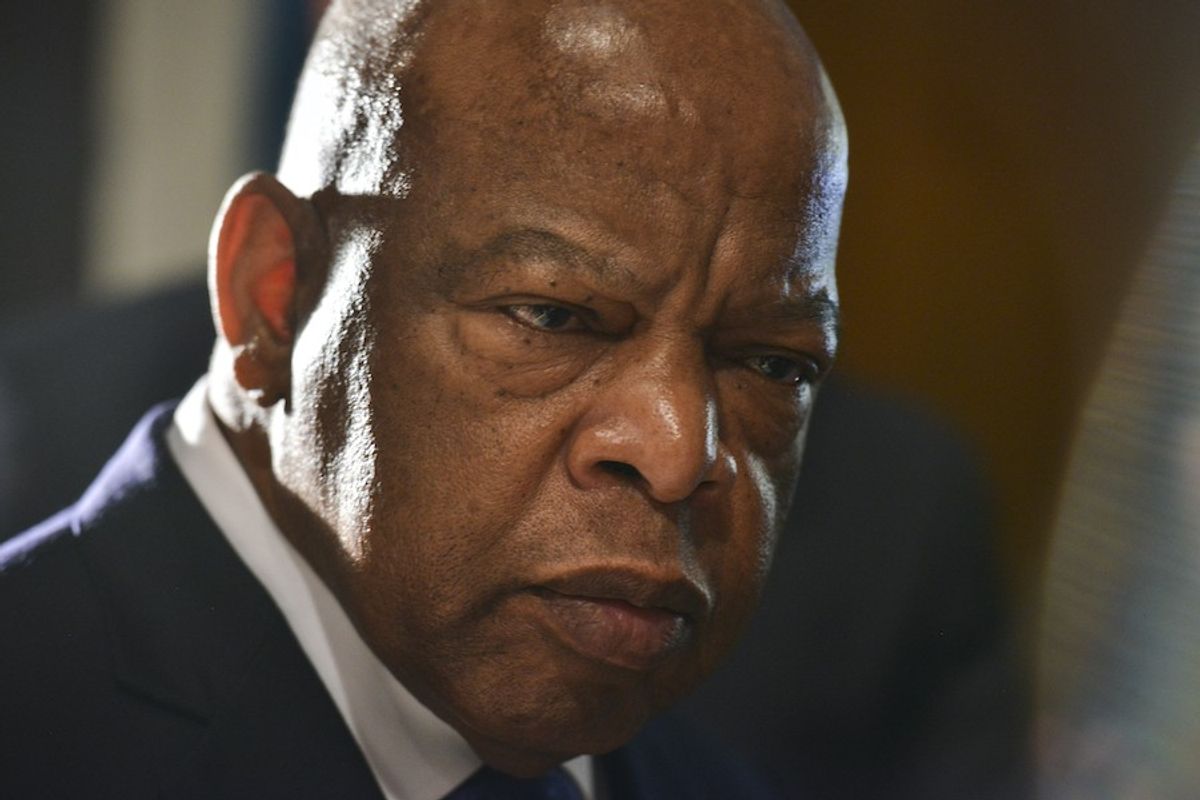
Civil Rights Hero, Congressman John Lewis, Dead at 80
(Photo by Jahi Chikwendiu/The Washington Post via Getty Images)

Civil rights icon John Lewis has died. He was 80-years-old.
According to Politico, the longtime Georgia congressman was diagnosed with late-phase pancreatic cancer at the end of 2019. He spent many months following his diagnosis at in-home hospice care surrounded by family and loved ones.
Born John Robert Lewis to a large family in rural Alabama, Lewis was one of ten children. At a young age, he hoped to become a preacher, but after watching the historic Brown v. Board of Education decision do little to affect local school administration, the seeds of a political awakening were sown. Still a teen, Lewis had already met prominent faces and voices in the blooming civil rights movement, including Dr. Martin Luther King Jr. and Rosa Parks. Soon after, Lewis attended Nashville's American Baptist Theological Seminary, where he'd meet even more leaders in the uprising. From there, Lewis helped found the Student Nonviolent Coordinating Committee (SNCC,) joined the Freedom Riders in integrating bus terminals across the south, and by 1963, was appointed to chairman of SNCC as the youngest leader of the "Big 6" civil rights organizations.
Before being elected to congress as a Georgia state representative, Lewis was an in-person witness to nearly all of the movement's pivotal moments. He addressed the audience before MLK at the March on Washington, walked across the Edmund Pettus Bridge in Selma where he and protestors were met with brutal force from Alabama state police (the footage from which spurred Lyndon B. Johnson's signing of the Civil Rights Act of 1965,) and was part of Robert Kennedy's campaign when the presidential hopeful was assassinated in 1968.
Politicians from both sides of the aisle have offered words on Lewis' foundational work in securing civil rights throughout the decades. In a statement this morning, former president, Barack Obama, wrote "Not many of us get to live to see our own legacy play out in such a meaningful, remarkable way. John Lewis did. And thanks to him, we now all have our marching orders — to keep believing in the possibility of remaking this country we love until it lives up to its full promise."